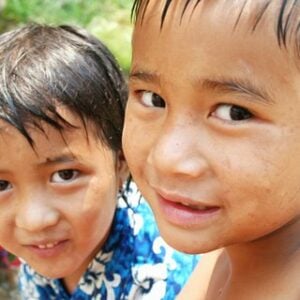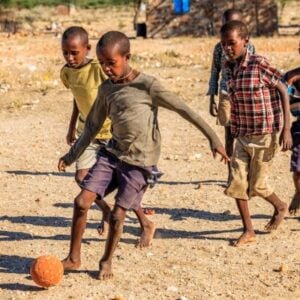In Nepal, one of the biggest barriers to better jobs and economic growth is not geography, natural resources, or access to finance, but the country’s limited investment in its people. Many young Nepalis are growing up without quality education, healthcare, and skills, particularly in remote and poorer regions. This has left much of Nepal’s human capital underdeveloped, reinforcing inequality and limiting productivity, innovation, and inclusive growth.
The challenge is not unique to Nepal. Globally, successful economies are those that prioritize investments in human capital—ensuring access to education, healthcare, and nutrition—rather than relying solely on natural resources. Strong human capital foundations lead to healthier, more productive communities and sustained economic growth, while neglecting these investments traps generations in cycles of low opportunity and limited development.
A new World Bank report, the Nepal Human Capital Review, highlights the scale of the problem. A child born in Nepal today is expected to reach just 51 percent of their full productivity potential by age 18 due to gaps in education, health, and nutrition. Inequalities are stark: a child in Karnali is expected to achieve only 46 percent of their potential, compared to 58 percent for a child in Bagmati. These disparities reflect unequal access to services, with children in wealthier regions benefiting from private investments while poorer families must rely on underfunded public systems.
Even for those who manage to build their skills, the labor market often fails to reward them. Quality jobs are scarce, with only four in ten new entrants to the workforce between 2010 and 2018 securing paid employment. Most available jobs are informal, poorly paid, and insecure, particularly in rural areas where investment lags. The challenges are sharper for young people, over a third of whom are not in education, employment, or training, and for women, whose labor force participation stands at just 29 percent. As a result, a child born today is expected to realize only 18 percent of their productivity potential in Nepal’s current job market—one of the lowest rates globally.
To reverse this trend, Nepal must invest more in education, healthcare, and social protection, ensuring that resources reach the most disadvantaged communities. Every child should have access to early learning, qualified teachers, learning materials, nutritious food, and basic health services. These are essential for building human capital and ensuring that where a child is born does not dictate their life opportunities.
Equally critical is the urgent need to create jobs. Nepal will require 6.5 million new jobs over the next three decades to match population growth. Achieving this demands long-term, strategic investments in people, skills, and systems while improving the business environment to attract both domestic and foreign investment. Stronger connections between training and labor market needs, expanded reskilling programs, and public-private partnerships can help equip young people with relevant skills, particularly in digital and technical fields.
Nepal stands at a crossroads: bold action today can ensure that its youth have opportunities to thrive in a modern economy. Investing in people is not just a moral obligation but the smartest path to creating jobs, driving growth, and building an inclusive society where all Nepalis can prosper.







